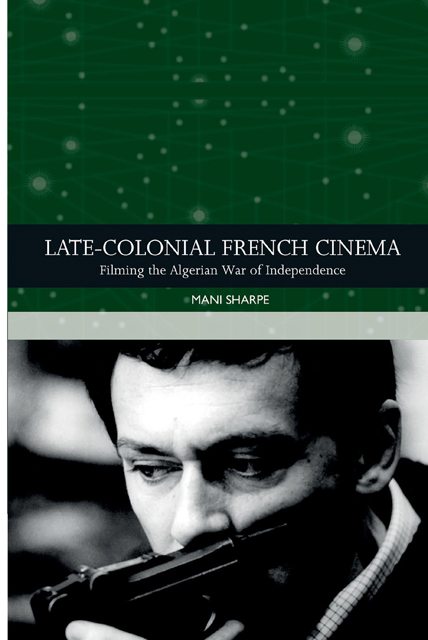Conclusion
Published online by Cambridge University Press: 13 April 2023
Summary
In his seminal book Beyond the Subtitle, Mark Betz ponders: ‘what is a film on the Algerian question’? (2009: 103, 107). In this book, I have posed a similar question; however, it is one that is broader in scope and articulated differently: ‘what is late-colonial French cinema’? By means of a conclusion, I would thus like to offer some provisional answers to this question, based on analysis conducted in previous chapters. As I suggested in the Introduction, late-colonial cinema should, in the first instance, be understood as a corpus of (mainly) French films that arose during, and commented on, the end of colonialism in French Algeria, as the region was engulfed by war in the late 1950s and early 1960s. This corpus did not respect generic boundaries, with a plethora of filmic influences and affiliations being laced into each of the case studies of my chapters, including film noir, the Second World War combat film, the so-called Right Bank of the New Wave, the so-called Left Bank of the New Wave, Soviet Montage cinema, Italian neorealism, as well as exercises in ‘expository’, ‘interactive’ and ‘observational’ documentary. In the second instance, this book has argued that late-colonial French films shared an important commonality insofar as they articulated two attendant messages. One of these was a pacifist understanding of the war as an ultimately futile endeavour that had yielded few concrete military results. The other was an ethical understanding of France as ultimately innocent of the atrocities committed during the war. Together, these messages coalesced to contribute to a discourse of ‘redemptive pacifism’.
Propelled by a desire to show how this ‘redemptive pacifism’ manifested itself in various late-colonial films, each chapter of this book has come to a slightly different conclusion. In Chapter 1, for instance, I examined the domestically orientated iconographies of Jacques Rozier’s Adieu Philippine/Good-bye Philippine (1963) and Robert Enrico’s La Belle vie/The Good Life (1964), demonstrating how both films deploy the visual vocabulary of the privatised abode to temper the allusions to the war elaborated therein. In their framing of military identity, both films also introduce one of the recurring themes of late-colonial French cinema – absolution – with Dédé being depicted as ethically cleansed in the ‘haven’ of Michel’s home, whilst a disengaged Frédéric redeems himself through a credo of domestic acquisition.
- Type
- Chapter
- Information
- Late-Colonial French CinemaFilming the Algerian War of Independence, pp. 217 - 223Publisher: Edinburgh University PressPrint publication year: 2023



